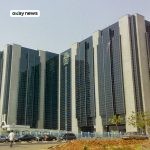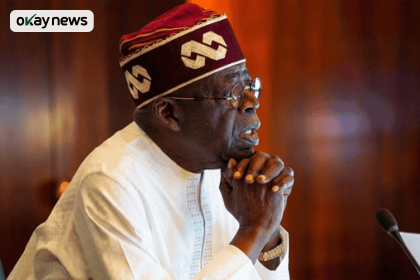Okay News reports that an overwhelming majority of Nigerian households have expressed a strong demand for lower interest rates, with 61.5 percent of respondents indicating they want rates to fall by October 2025. The findings reflect growing concerns among households about the rising cost of borrowing and the overall tightening credit conditions in Africa’s largest economy
This is according to the latest Household Expectations Survey released by the Central Bank of Nigeria, the country’s apex financial institution responsible for monetary policy and financial system stability. The survey measures consumer expectations about inflation, interest rates, employment, and overall economic conditions.
“Majority of respondents continue to prefer lower interest rates, with 61.5 percent indicating a desire for rates to fall (decline) in October 2025,” the report said. The survey provides insights into household sentiment and expectations that help guide monetary policy decisions in Nigeria.
According to the survey, 42.5 percent of Nigerians specifically indicated they want interest rates reduced—even if such reductions could fuel inflationary pressures. This signals a widespread preference for more affordable credit to support household spending, business activities, and general financial stability despite inflation remaining a major economic challenge.
“In October 2025, 42.5 percent of respondents indicated a preference for a decrease in interest rates without minding the inflationary effect,” the CBN survey revealed. The finding suggests many households prioritize immediate access to affordable credit over concerns about potential price increases.
The report also highlights that a larger percentage of respondents observed an increase in interest rates on bank loans over the past three months. This trend aligns with monetary policy tightening measures implemented to curb inflation, but it has also made access to credit more challenging for individuals and small businesses across Nigeria.
Analysts say the rising interest rate environment has had ripple effects across sectors. They say small and medium-sized enterprises—often dependent on bank loans—continue to express concerns about loan affordability and working capital constraints. SMEs form the backbone of Nigeria’s economy, accounting for nearly 50 percent of GDP and employing over 80 percent of the workforce.
At its 302nd meeting in Abuja, Nigeria’s capital, the CBN reduced the Monetary Policy Rate by 50 basis points, bringing it down from 27.5 percent to 27 percent. The Monetary Policy Rate serves as the benchmark interest rate that influences lending and deposit rates across the Nigerian banking system.
CBN Governor Olayemi Cardoso explained that the adjustment reflects the Committee’s cautious attempt to ease monetary conditions in response to signs of moderating inflation and improving macroeconomic fundamentals. Cardoso assumed office as CBN governor in September 2023, succeeding Godwin Emefiele.
In addition, the Monetary Policy Committee adjusted the asymmetric corridor around the benchmark rate to +250/-250 basis points, compared to the previous +500/-100 basis points. This technical adjustment affects the rates at which banks can borrow from or lend to the central bank through its standing facilities.
The Committee retained the Cash Reserve Ratio for commercial banks at 45 percent, while that of merchant banks was set at 16 percent. The Cash Reserve Ratio represents the proportion of customer deposits that banks must hold as reserves with the central bank rather than lending out.
The National Bureau of Statistics, Nigeria’s official statistics agency, reports that Nigeria’s headline inflation rate eased to 18.02 percent in September compared to 20.12 percent in August. The decline represents a significant improvement in price stability after months of elevated inflation.
According to NBS, on a year-on-year basis, the headline inflation rate was 14.68 percent lower than the rate recorded in September 2024 at 32.70 percent, showing that the headline inflation rate decreased in September 2025 compared to the same month in the preceding year. The improvement reflects the impact of various monetary and fiscal policy measures implemented by Nigerian authorities.







